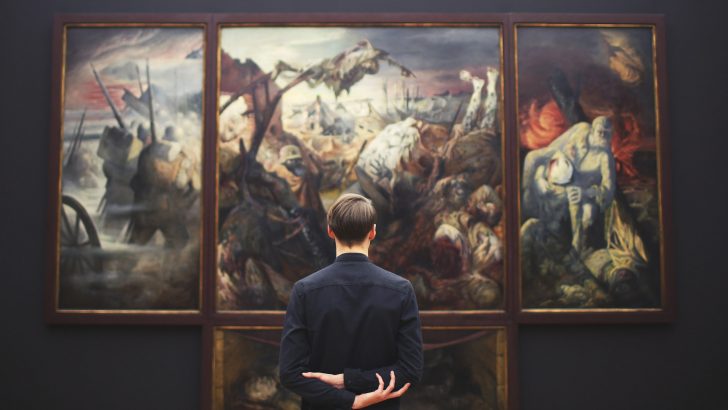Everyday Philosophy
I’ve been thinking a lot about art lately. I’ve been catching up on the excellent Risking Enchantment podcast, which discusses beauty in art and culture and its place in the Catholic faith. And I recently had the privilege of hearing the art historian Elizabeth Lev talk about Michelangelo’s Sistine Chapel paintings. I don’t know much about visual art, but Lev is a master speaker and helped even a novice like me to appreciate the aesthetic and theological depth of the work.
The whole thing had me thinking about a question in the philosophy of art. Aesthetics, the philosophy of beauty and art, has never really been my area, and so there are a lot of questions about it that I am going to steer clear of. I know nothing about whether beauty is a true transcendental in Thomistic philosophy, or even what beauty in art is in its essence. But I’ve long been interested in a narrower question: whether and to what extent beauty is objective or subjective.
The subjective side of the argument is the dominant one in the popular mind, and it has plenty of folk wisdom behind it. “Beauty is in the eye of the beholder”, “De gustibus non estdisputandum”, etc.. There’s a lot of intuitive strength to the position. There seems to be something doubtful about saying that a person is wrong to appreciate a particular piece of art if there’s nothing morally offensive about it. Nor does it seem wrong to fail to be enthusiastic about any given piece of art.
It’s easy to make the ‘beauty is objective’ position look absurd. Does that mean that beauty is measurable, quantifiable, scientific? Can we count the beauty units? Can we, perhaps, place every work of art on some kind of ranked list? Is Beethoven’s fifth symphony better than Jane Eyre? Are Monet’s Water Lilies better than Breaking Bad? Objectivity about aesthetics can’t be worth much if it turns discourse about art into the adult equivalent of playground discussions about which Pokémon would win in a fight. (Not, to be clear, that there’s anything wrong with those.) Nor is there anything attractive about an art snob, sneering at the masses because they enjoyed the latest Fast and Furious movie.
All that said, I think objectivity about art and beauty is the correct position. But in order to think about things in the right way, it’s worth drawing a bit of a distinction between what you like and what is good.
A useful place to start is with the ‘Stupidity of Saying Shakespeare Sucks’ principle. The principle is pretty self-explanatory: you can’t say that William Shakespeare sucks without being silly. On the other hand, you can say that you don’t like Shakespeare. You can say that his particular kind of art isn’t the one that speaks to you most, or even that it doesn’t appeal to you at all. But you can’t say “Shakespeare is a bad artist”. The same goes for Mozart, or indeed Michelangelo.
On the other hand, to say that Dan Brown, renowned author of The Da Vinci Code, is a bad artist is quite OK. It’s not that his books are necessarily bad (although they mostly are): it’s that the possibility is legitimately up for discussion. You can even believe that Dan Brown’s books aren’t very good and still enjoy reading them.
If we don’t acknowledge that William Shakespeare is really a better writer than Dan Brown, we’re failing to notice something about the world. Worse, we’re making the world a flatter, less interesting place for ourselves. Much of the best art in the world, the art that will touch us the most, requires a certain amount of effort and thought to appreciate. If we convince ourselves that it’s all subjective anyway, we might stop ourselves from putting in the effort to seek out the truly great stuff.
None of this means we have to go back to a strict ranking scale (both Shakespeare and Tolkien are infinitely more rewarding than Brown, but it doesn’t really matter which of those two is the greatest).
Nor does it mean that you should only seek out ‘worthy’ art and ignore your own preferences. Forcing yourself to spend lots of time engaging with art that you don’t enjoy at all is usually a bad idea: by grimly slogging through a book that you hate reading because you know it’s objectively good, you’re likely to ruin the book for yourself forever. But if we challenge ourselves a little bit at a time, gradually pushing ourselves slightly out of our artistic comfort zone, we could ultimately come back to that book and find that its treasures are now accessible. Recognising that there is an objective element to beauty makes us better seekers after that kind of treasure.


 Ben Conroy
Ben Conroy